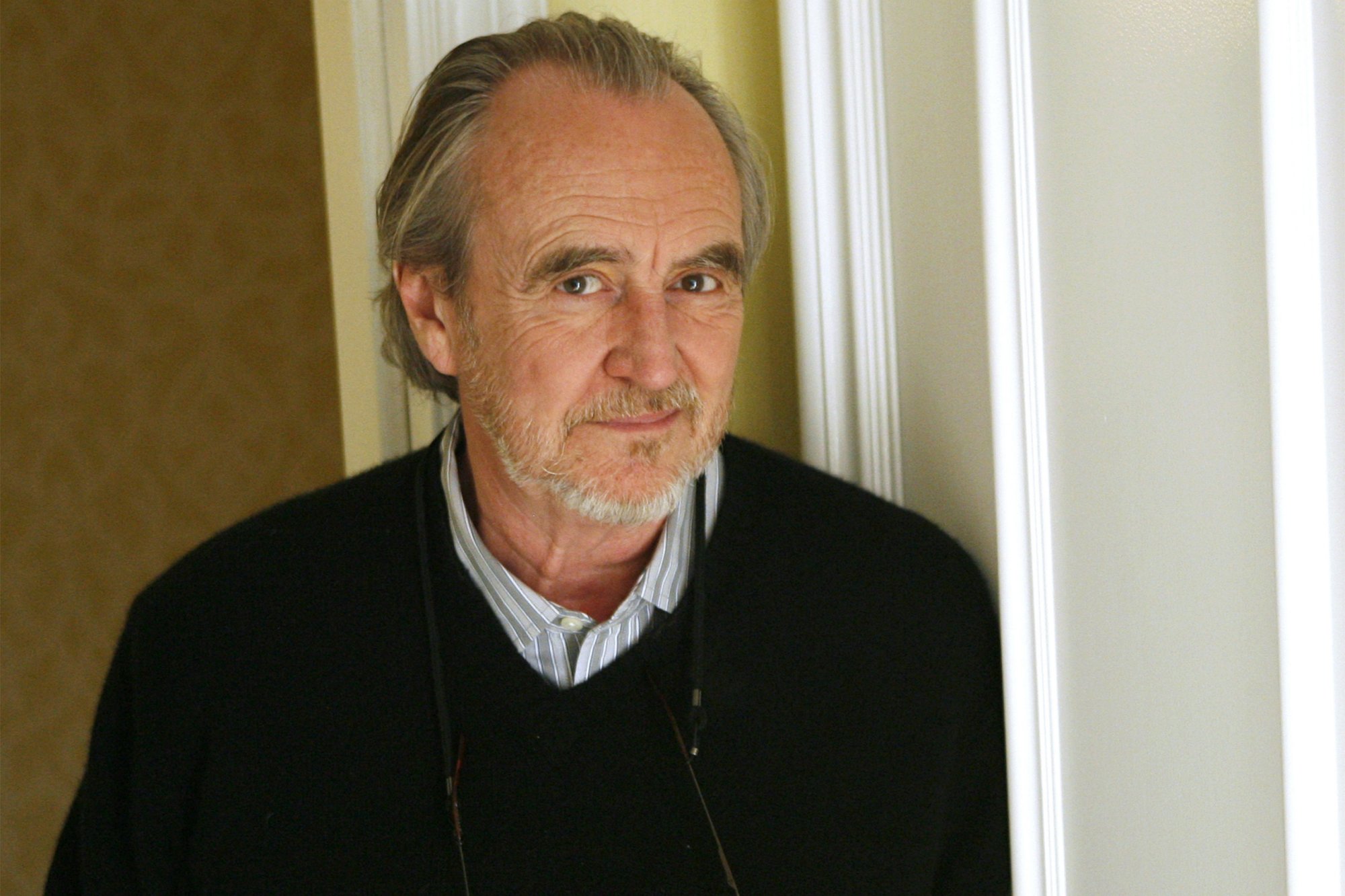When you think of horror movies, one name stands out like a beacon of terror: Wes Craven. The man behind iconic films like "A Nightmare on Elm Street," "Scream," and "The Last House on the Left" wasn't just a filmmaker—he was a visionary who redefined the horror genre. But beyond the blood, screams, and jump scares, what about Wes Craven's financial legacy? How much was Wes Craven worth at the time of his passing, and what impact did his work have on the entertainment industry? Let's dive into the world of Wes Craven's net worth and uncover some fascinating facts.
Wes Craven wasn't just a director; he was a storyteller who understood the human psyche. His films didn't just scare people—they made them think. From Freddy Krueger's twisted dreams to Sidney Prescott's fight against Ghostface, Craven's creations left an indelible mark on pop culture. But while his contributions to horror are well-documented, his financial achievements often go unnoticed. Today, we're going to explore Wes Craven's net worth, how he built his empire, and what his legacy means for future filmmakers.
If you're curious about the man behind the mask—or in this case, the man behind Freddy's fedora—then you're in for a treat. We'll cover everything from his early career to his blockbuster hits, and we'll even throw in some fun facts about his personal life. So buckle up, because we're about to take a deep dive into Wes Craven's world of horror and wealth.
Read also:Mastering Remoteiot Vpc Raspberry Pi The Ultimate Guide For Tech Enthusiasts
Biography of Wes Craven: The Man Behind the Masks
Before we get into Wes Craven's net worth, let's take a moment to appreciate the man himself. Born on August 2, 1939, in Cleveland, Ohio, Wesley Earl Craven grew up in a strict Baptist household. Despite his conservative upbringing, Craven developed a fascination with the darker side of life, which would later become the foundation of his filmmaking career.
Craven attended Wheaton College, a Christian liberal arts school, where he studied literature and psychology. It was during this time that he began to explore his interest in horror and the human psyche. After graduation, he worked as a college professor, teaching literature and psychology. But his true passion lay in filmmaking, and he eventually made the leap to Hollywood.
Wes Craven's journey wasn't without its challenges. In the early days, he faced criticism and even censorship for his bold and graphic films. But he persevered, and his unique vision eventually earned him a place among the greats of the horror genre. Let's take a closer look at his life with some key details:
Wes Craven's Personal Information
| Full Name | Wesley Earl Craven |
|---|---|
| Date of Birth | August 2, 1939 |
| Place of Birth | Cleveland, Ohio |
| Date of Death | August 30, 2015 |
| Education | Wheaton College (B.A. in Literature and Psychology) |
| Spouse | Charlene Lyle (divorced), Iya Labunka (widow) |
Wes Craven Net Worth: Breaking Down the Numbers
So, how much was Wes Craven worth? At the time of his death in 2015, Wes Craven's net worth was estimated to be around $30 million. While this might not seem like a staggering amount compared to some of Hollywood's biggest stars, it's important to remember that Craven wasn't just in it for the money. His passion for storytelling and his dedication to the craft of filmmaking were his primary drivers.
Craven's wealth came primarily from his successful film career. Some of his most iconic films, like "A Nightmare on Elm Street" and "Scream," became cultural phenomena and generated massive box office revenue. But it wasn't just the box office that contributed to his net worth. Craven also earned royalties from home video sales, streaming rights, and merchandise.
Key Films and Their Financial Impact
- A Nightmare on Elm Street (1984): This film launched Freddy Krueger into pop culture stardom and grossed over $25 million on a budget of just $1.8 million.
- Scream (1996): A modern classic that revitalized the slasher genre, "Scream" earned over $173 million worldwide on a budget of $15 million.
- The Last House on the Left (1972): Craven's debut film was controversial but highly profitable, grossing over $12 million on a budget of just $86,000.
How Wes Craven Built His Empire
Craven's career wasn't built overnight. It took years of hard work, dedication, and a willingness to push boundaries. In the early days, he often worked with limited budgets and faced significant challenges. But his unique vision and talent for storytelling set him apart from his peers.
Read also:Mastering Egrave144scaronaeligndashmacreacutedaggeroeligacircmiddotaringregpermilaringbrvbarregacircmiddotaringldquocircaringhelliplsaquoaeligrsaquofrac14 The Ultimate Guide
One of the keys to Craven's success was his ability to create memorable characters. Freddy Krueger, Ghostface, and countless other villains became cultural icons, ensuring that his films would have a lasting impact. Additionally, Craven had a knack for reinventing the horror genre, bringing fresh ideas to a genre that was often stagnant.
Craven's Approach to Filmmaking
Craven's approach to filmmaking was deeply rooted in psychology and human behavior. He believed that the best horror films weren't just about jump scares—they were about exploring the darker aspects of the human psyche. This philosophy is evident in films like "The Serpent and the Rainbow" and "The People Under the Stairs," which delve into themes of fear, power, and survival.
The Legacy of Wes Craven
Wes Craven's legacy extends far beyond his financial success. He left an indelible mark on the horror genre, influencing countless filmmakers and inspiring a new generation of horror enthusiasts. His films continue to be celebrated for their innovation, creativity, and lasting impact.
Craven's influence can be seen in modern horror films like "Get Out," "Hereditary," and "The Conjuring." These films, like Craven's work, combine psychological depth with terrifying visuals, proving that his approach to horror is still relevant today.
Craven's Impact on the Horror Genre
Craven's impact on the horror genre cannot be overstated. He helped to redefine what horror could be, moving beyond simple jump scares to create films that resonated on a deeper level. His use of symbolism, metaphor, and psychological themes set a new standard for horror filmmakers.
Challenges and Controversies in Wes Craven's Career
Like any great artist, Wes Craven faced his share of challenges and controversies throughout his career. Some of his early films, like "The Last House on the Left" and "The Hills Have Eyes," were criticized for their graphic violence and disturbing content. However, Craven defended his work, arguing that it was a reflection of the darker aspects of human nature.
Despite the controversy, Craven's films continued to find success with audiences. He proved that horror could be both provocative and profitable, paving the way for future filmmakers to explore darker themes without fear of censorship.
Craven's Response to Criticism
Craven was never one to shy away from controversy. In interviews, he often spoke about the importance of challenging audiences and pushing boundaries. He believed that horror films had the power to make people think, and he wasn't afraid to tackle difficult subjects.
Lessons from Wes Craven's Career
Wes Craven's career offers valuable lessons for aspiring filmmakers and storytellers. One of the most important lessons is the importance of staying true to your vision. Craven could have played it safe and stuck to formulaic horror films, but instead, he chose to take risks and explore new ideas.
Another key lesson is the importance of character development. Craven's films are memorable not just because of their scares, but because of their compelling characters. Freddy Krueger, Ghostface, and Sidney Prescott are just a few examples of characters who have become cultural icons.
Craven's Philosophy on Filmmaking
Craven once said, "Horror films are like a Rorschach test. They reveal the fears and anxieties of the society that produces them." This philosophy is evident in his work, which often reflects the social and political issues of the time. From the economic struggles of the 1970s to the media obsession of the 1990s, Craven's films were a mirror of the world around him.
Conclusion: Wes Craven's Lasting Impact
Wes Craven's net worth may have been around $30 million at the time of his death, but his true legacy is immeasurable. He was a pioneer in the horror genre, a visionary who redefined what horror could be. His films continue to inspire and terrify audiences around the world, ensuring that his legacy will live on for generations to come.
So, the next time you watch "A Nightmare on Elm Street" or "Scream," take a moment to appreciate the man behind the mask. Wes Craven wasn't just a filmmaker—he was a storyteller who understood the power of fear. And for that, we owe him a debt of gratitude.
If you enjoyed this article, don't forget to leave a comment and share it with your friends. And if you're interested in learning more about Wes Craven or the horror genre, be sure to check out some of our other articles. Thanks for reading, and remember: Freddy's always watching.
Table of Contents


